
Lockdown Harms #mentalhealth
1. UK @mentalhealth foundation November report states,there has been a slow decline in people coping with the COVID-19 restrictions and the impact this has on their mental health
tinyurl.com/yby4rkeb
1. UK @mentalhealth foundation November report states,there has been a slow decline in people coping with the COVID-19 restrictions and the impact this has on their mental health
tinyurl.com/yby4rkeb
2. The report states that Almost half (45%) of the UK population had felt anxious or worried in the previous two weeks. Feelings of loneliness were higher in younger people too, with 38% aged 18-24 , which has been consistently higher across all waves than the general population. 
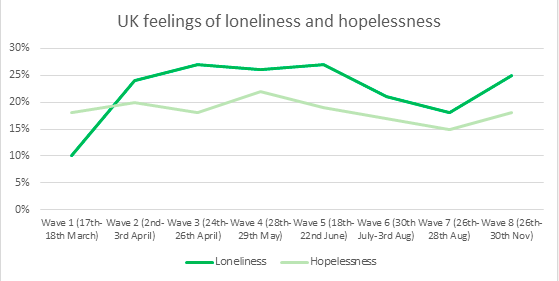
3. A decline in our populations’ ability to cope with the stress of the pandemic-from 62% to 73%. Of those who reported not coping with this stress well (17%),those who have pre-existing mental health condition(s) were more likely to not be coping very well or not at all well-37%
4.Coping levels have been consistently lower in #unemployed people versus the UK total sample, highlighted in our most recent wave eight, where 62% of the UK total sample were coping very or fairly well, whereas only 51% of unemployed people are coping very or fairly well. 
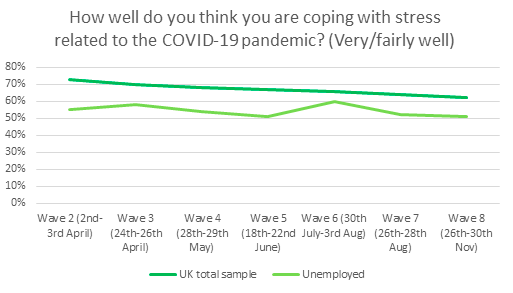
5. The UK feels uncertain about being separated from family and feelings of worry are increasing:44% are worried about the mental health of their #children,over half are worried that the future is going to be worse and 57% of 13-19 YO's are worried about their own future. 
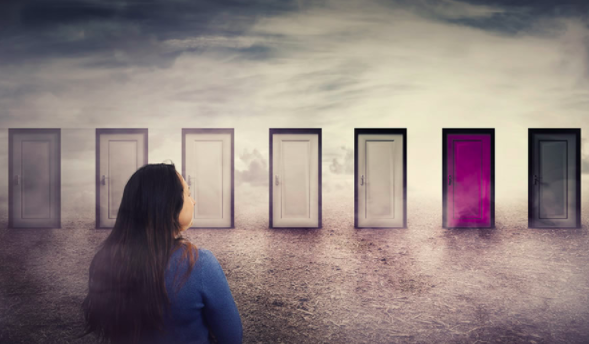
6.The proportion of people who had experienced suicidal thoughts/feelings had risen slightly from 10% to 13%. These figures were highest in 18 - 24 year olds.
10% said they had experienced these thoughts once or more times a day.
10% said they had experienced these thoughts once or more times a day.
7. 8% of people aged 18-24 reported that they had deliberately hurt themselves, which was a slight increase from the former wave. 
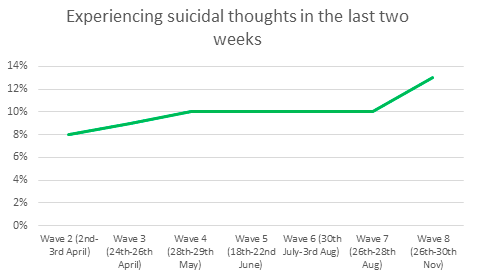
8. The study shows that almost nine out of ten (87%) of those who have experienced stress as a result of the pandemic reported that they were doing at least one activity to cope with the stress:
9. 40% of respondents reported that limiting exposure to Covid19 news helped
67% of women found contacting family helped cope with the stress
Accessing green spaces supported 42% of the population
Those over 70 report that going for a walk(66%) and contacting family (65%) helped
67% of women found contacting family helped cope with the stress
Accessing green spaces supported 42% of the population
Those over 70 report that going for a walk(66%) and contacting family (65%) helped
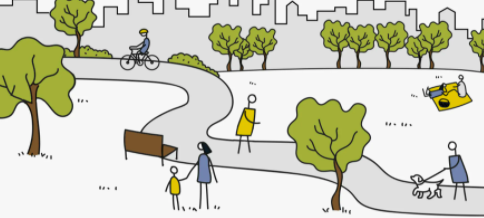
10. Do you need urgent help?
If your mental or emotional state quickly gets worse, or you're worried about someone you know - help is available.
mentalhealth.org.uk/your-mental-he…
You're not alone; talk to someone you trust. Sharing a problem is often the first step to recovery.
If your mental or emotional state quickly gets worse, or you're worried about someone you know - help is available.
mentalhealth.org.uk/your-mental-he…
You're not alone; talk to someone you trust. Sharing a problem is often the first step to recovery.
• • •
Missing some Tweet in this thread? You can try to
force a refresh





